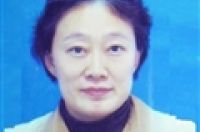
如同教师渴望能有实际的机会教导与提高学生,作为心理咨询师,则总是选择大众中的少数人,要为那些仍未获得教育资源的少数人服务,希望其热忱、耐心和关怀,能够促进对这些人内在需要的理解,引导其生活。即便人性使然,即使其成长并非是由于如此的辛苦努力。
尽管如此,但有时,作为心理医生,命中注定也要将治愈本身扩展,使其利益深远。《洗心岛之梦》的作者——申荷永教授,正在做出这样的贡献。他是目前中国心理分析的引领者,正值其五十周岁,他在此书中所呈现的广博,如同他本来所具有的深刻。犹如中国的一条大河,他与心灵的沟通和联结,为许多人提供了一种途径,能使他们的生活也从善如流,若是他们愿意关注愿意倾听此书中的要旨。
像许多中国的传说一样,他的导师是一位前辈,这位前辈的教诲并没有被遗忘,反而历久弥新。这位前辈就是伟大的瑞士心灵分析师卡尔·荣格。在其前辈教诲的基础上,申荷永教授推陈出新,阐发己见。他知道,当我们的生活与心灵失去了联系,心灵若不能赋予我们生活意义的时候,从梦中获取原动力是何等的重要。
在其《洗心岛之梦》中,申荷永博士挑战了人们关于梦的传统观念,梦不是用来算命的借口,梦也并非仅仅是失调的征兆。在申博士看来,梦并不只是我们弱势心理功能的反应, 尽管这些弱势功能很容易受到如此阴影的诱惑。弗洛伊德自己不是曾经告诉我们,梦只是欲望的伪装吗?作为中国人不是常常被告知,以不现实的渴望来建筑自我之塔是很危险的吗?申博士对此有着不同的见解,梦并非来自不安灵魂的虚空,而是心灵的充实。“鸣鹤在阴,其子和之,我有好爵,吾与尔共弥之。”[1] 荷永的《洗心岛之梦》,犹如流溢的生活之泉,可用其觉悟、智慧以及时有的谨慎,灌溉所有人的心田。他理解,所有意识性进步的努力,都必然具有更为深层的背景,这使得他身体力行,实践自己的信念和理想,并没有太多的心理学家能够如他这般执着笃行。但是,这同样使得他保持谦卑。他知道,即使是拥有大其心的胸怀,仍然需要被指示,而这种指示也包括了早晨起来记下自己梦的仪式。这便是申荷永教授的《洗心岛之梦》,他梦中的源泉,梦中的教化。
申荷永教授谦逊地约我来做序言,这是我的荣幸。任何人,任何能够感受心灵通过梦向其传达消息的人,都将高兴聆听申教授将我们生活中的梦与心灵做如此生动的叙说。他完成了一部不会让你发狂,但会使人明智的著作。我将其推荐给中文读者,你们也定将会使其传向西方。
约翰·比毕
美国荣格心理分析师
美国旧金山荣格学院前任院长
《荣格杂志》期刊创办人
2011年1月
(《洗心岛之梦:自性化与感应心法》,申荷永著,广东科技出版社2011;“心理分析与中国文化论坛”(www.psyheartbbs.org)有签名售书活动)
Foreword
Dream of the Fountain, Education and Transformation
Like a teacher who aspires to makes education a better experience for the students he or she actually has a chance to work with, a psychological counselor is usually someone who chooses to provide a service to a few individuals in the large community of the still uneducated, and lets it go at that, hoping that devotion, patience, and care will suffice to promote the kind of understanding that people need, to lead their lives, even if the possibilities of human nature are not especially expanded by such worthy efforts.
Occasionally, though, it is the fate of a psychological doctor to expand the circle of healing itself, so that it can benefit people far and wide. The author of this book on dreams, Professor Shen Heyong, is making such a contribution. At fifty, he is the leading teacher of analytical psychology in China, but in this book he proves himself to be as deep as he is broad. Like one of China’s great rivers, his connection to psyche provides many people a way to make their own lives flow forward, if only they will listen to his essential message.
Like many another Chinese person, his teacher and mentor is an ancestor, whose lessons have not been forgotten—in this case, the great Swiss analyst of the soul, Dr. C. G. Jung. From this ancestor, whose teaching Professor Heyong Shen has made his own, he has learned how important it is, in trying to live a life that the psyche will not find irrelevant, to “proceed from the dream outward.”
Within the pages of his book--- Dreaming of Xixindao, Dr. Shen challenges long-held views that dreams are a form of fortune telling, or merely a symptom of imbalance—either way, something that could only interest the inferior side of all of us, which is so easily tempted by such shadows. Did not Freud himself tell us that dreams are nothing but wishes in disguise, and haven’t the Chinese learned again and again of the dangers of building their pagodas on that sort of sentimental ambition? Dr. Shen has another view: that the dream comes not from the emptiness of a restless soul, but from the fullness of the heart-mind, a “good goblet” that is overflowing with what it can share about life, to irrigate anyone’s growing field with insight, wisdom, and timely warnings. His understanding that there is a deeper context in which all conscious efforts to better oneself must be occurring has helped him shape his own life of service in as practical and focused a way as any psychologist has been able to do. But It has also kept him humble, knowing that even a large soul must allow itself to be instructed, and that such instruction is on offer in the morning ritual of remembering one’s dreams. This is a practice that has served professor Shen himself well, his Dreaming of Xixindao, the dream fountain, and the education of dreams.
He is too modest to recommend it for everyone, I am very honor to write this foreword, but anyone who has a living soul that speaks to them through dreams will be glad he has granted this part of our lives such a respectful hearing. He has written a book that will not drive you crazy, and that just may make you sane. I commend it to the Chinese reader, who will surely recommend it to the West.
John Beebe
Jungian Analyst, past-president of the San Francisco C.G. Jung Institute,
founder editor of the Jung Journal.
[1] 约翰·比毕此处用的是《易经》中的“中孚”之“九二”。“中孚”被翻译成英文的时候,用的是“内在真理”或“内在真实”(Inner Truth)。




